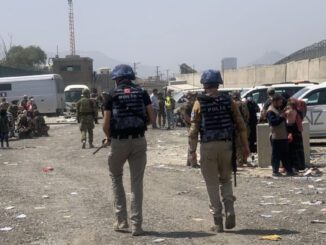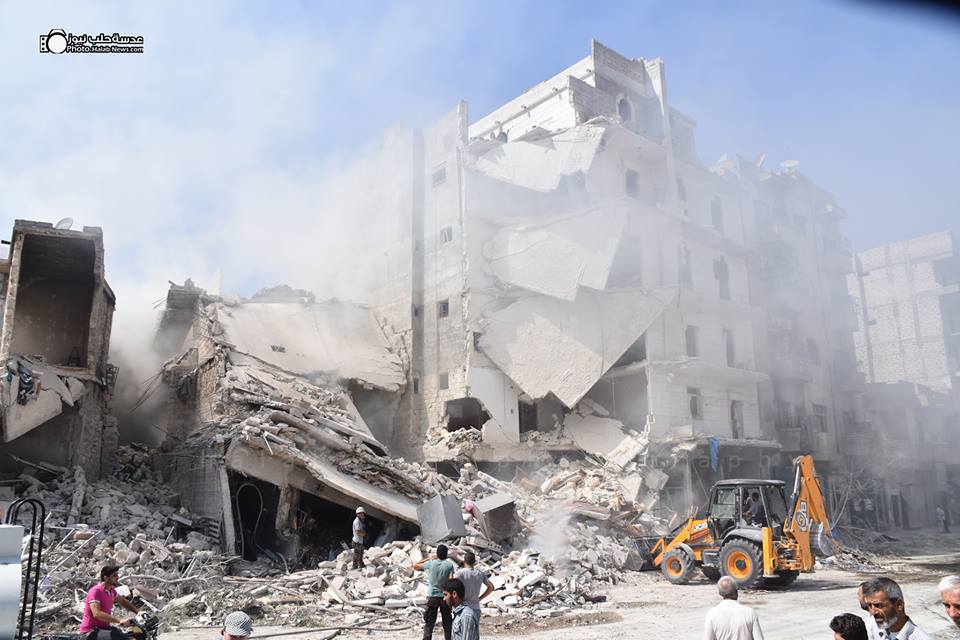
United Nations Secretary-General Ban Ki-moon has urged the Israeli government to stop its settlement policy to make way for a two-state solution in the Middle East, according to Anadolu Agency.
The settlements are “in flagrant disregard of the international law”, Ban said while addressing a UN session Tuesday.
Shortly after the Middle East Quartet called on the Israeli government to halt construction on Palestinian territory, Israel revealed designs to build 560 new housing units in the West Bank and another 240 others in East Jerusalem.
“These actions constitute an undeniable contradiction to Israel’s official support for a negotiated two-state solution. I urge Israel to immediately cease and reverse these plans,” he said.
A two-state solution to the Israeli-Palestinian conflict is more remote than ever, with the risk of generations of violence and radicalism unless leaders act, the United Nations’ most senior official in the region said on Wednesday.
In his first public comments since the publication on July 1 of a report by the Quartet of Middle East mediators, the UN’s special coordinator for the region, Nickolay Mladenov, said the situation was approaching a point of no return.
“[The two-state solution] is perhaps the furthest away it’s ever been, and in fact it is really worse than that — it is slipping away as we speak,” he told Reuters in an interview, citing Israeli settlement building and Palestinian violence and incitement as among the most troubling obstacles.
“It’s time for the international community and the leadership on both sides to wake up.”
“The only alternative [to a two-state solution] that I see is perpetual violence here in Israel and Palestine and entangling this conflict into the broader problems of the region,” he said, adding it would be akin to “writing a blank cheque to violence and radicalism” for generations to come.
Ban urged Palestinian and Israeli leaders to cooperate with the Middle East Quartet — made up of the UN, the U.S., the EU and Russia.
U.S. envoy to the UN, Samantha Power, also expressed concerns about the Israel’s plans to erect more settlements on Palestinian territory in July.
“If implemented, this would be the latest step in what seems to be a systematic process of land seizures, settlement expansions, and legalizations of outposts that is fundamentally undermining the prospects for a two-state solution,” Power said. “Settlement activity is incompatible with a two-state solution and counterproductive to the cause of peace.”
Turkey, represented in the UN session, also expressed reservations about a “deteriorating situation on the ground” regarding settlements and land seizure.
“The expansion of illegal settlements, as well as land confiscations, displacement of native communities, denying the Palestinians’ right to use natural resources, and prevailing culture of impunity erode the viability of two-state solution,” according to Ankara.
In its report July 1, the Quartet said a two-state solution continues to be the “only way to achieve an enduring peace” in the Israeli-Palestinian conflict but current trends are “imperiling” its viability.
Since October, Palestinian street attacks have killed at least 33 Israelis and two visiting Americans. Israel has killed at least 202 Palestinians, 137 of whom it said were assailants. Others were killed during clashes and protests.
In the occupied West Bank on Wednesday, Israeli forces shot dead a Palestinian who the military said drove a car at high speed at troops during a raid on a weapons-making workshop.
Some members of Israeli Prime Minister Benjamin Netanyahu’s right-wing government openly dismiss the idea of a Palestinian state, suggesting Israel should annex what is known as Area C of the West Bank, which makes up over 60 per cent of the territory and is where nearly all Israel’s settlements are located.
Some others, including Israel’s president, talk broadly of a one-state solution, with Israelis and Palestinians living side-by-side, with equal rights, in a single country, although it is not clear how Israel would be able to remain both Jewish and democratic in such a set-up.
Mladenov, a former Bulgarian foreign minister who was previously head of the UN mission in Iraq, said such ideas were a distraction that would harm Israelis and Palestinians.
With much of the Middle East in turmoil, the international community finds itself pulled in multiple directions and Mladenov acknowledged there was a degree of fatigue over the Israeli-Palestinian conflict, which has consumed diplomats’ attention and energy for nearly 70 years.
But Mladenov said it was critical to tackle the Israeli-Palestinian issue so as to avoid a further deterioration in security across the wider region.
“You cannot disengage from it because it will continue to deteriorate and it will obviously become entangled with the rest of the region at some point in the future, which will be extremely dangerous for everybody,” he said.
Beyond an end to violence, settlement-building and land seizures, the first objective should be a return to direct negotiations, he said.
But the prospects are dim, with the last peace talks held in 2014. The Egyptians, the French and the Quartet — made up of the United States, the European Union, the United Nations and Russia — are working to bring them the sides together but so far without success.
“At this stage to say they will come back to negotiate tomorrow would be close to day-dreaming… The collapse of trust has been really dramatic,” said Mladenov.



